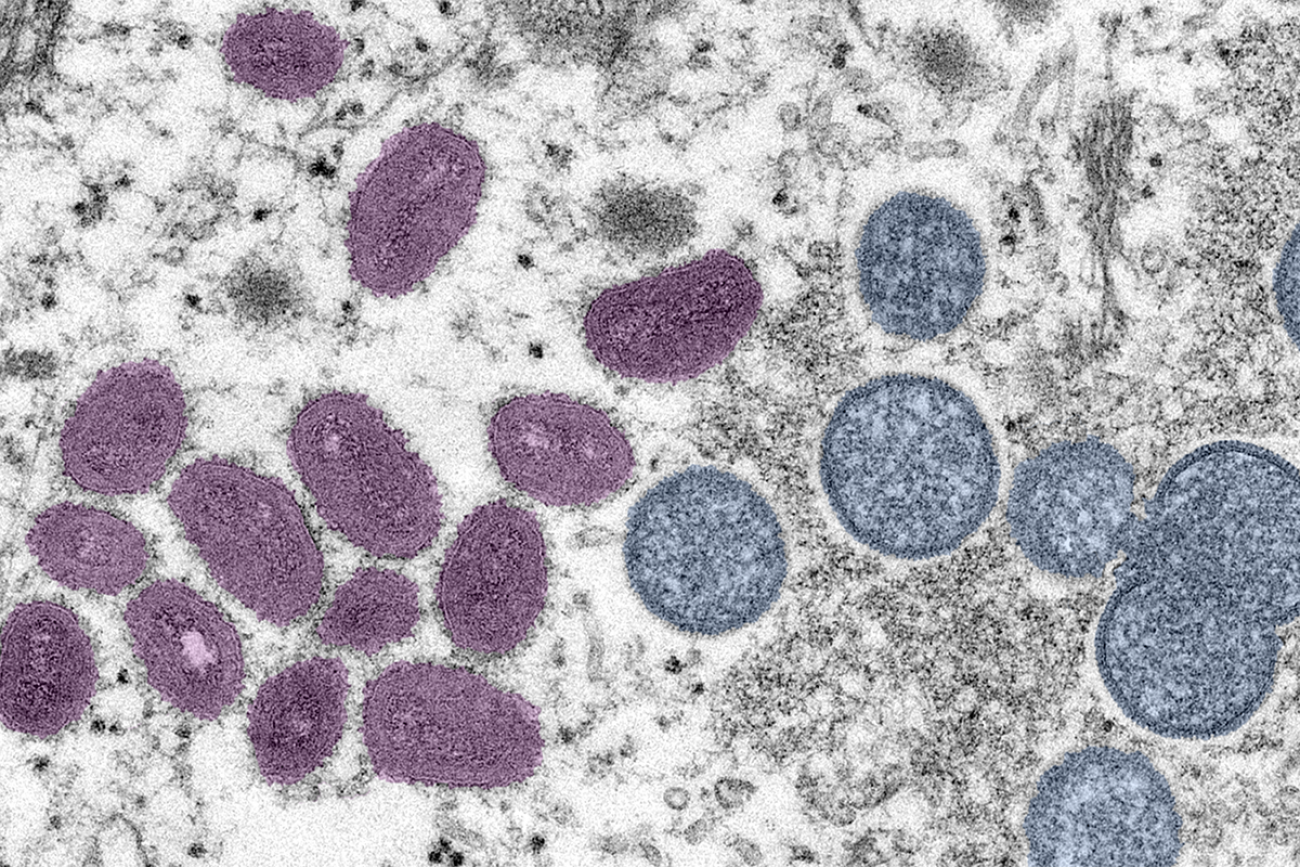Three months into monkeypox, a pleasant surprise in Michigan

- Just seven new monkeypox cases were recorded in Michigan over the past two weeks, a huge slowdown
- Health officials credit a public awareness campaign, vaccines and safety precautions by those most at risk
- A change in vaccine protocol extended the reach of limited doses of vaccines
No one is ready to declare victory over monkeypox in Michigan, but cases have slowed significantly in recent weeks.
That slowdown mirrors national case trends, and puts a public health “win” within reach, said Dr. Natasha Bagdasarian, chief medical executive at the Michigan Department of Health and Human Services.
Just seven new monkeypox cases have been confirmed in the past two weeks in Michigan, bringing the total to 265 cases since the first case was recorded June 29 in Oakland County, according to new state data.
Related:
- Back to school and monkeypox: How much should Michigan worry?
- Sewer poop: it's not just for COVID testing anymore
- As monkeypox cases spread among gay men in Michigan, messaging becomes tricky
As of Monday, 94 percent of the state’s 265 cases were listed as being among men who have sex with men, the most at-risk demographic. Three in five were Black residents. Three in four cases were among people 18 to 39 years old. Women accounted for just seven of the 265 cases.
No Michigan cases have been detected in children, according to the state’s monkeypox webpage.
The goal — to zero out cases altogether — is now within reach, Bagdasarian said. She credited front-line public health workers, community efforts to distribute the vaccine and the residents most at risk for taking precautions to lower the risk of spread.
“The first pillar in any sort of outbreak management is understanding what is the threat, being aware of the symptoms and how it transmits, and putting into place mitigation,” said Bagdasarian, a fellow at the Infectious Diseases Society of America.
While the state worked with organizations, local groups were aggressive in their outreach to the gay male community, raising awareness and distributing vaccines, she said.
“This is really a win for the affected communities. And it was their diligence, their hard work, their advocacy,” she said.
There’s another factor, too, she said: In August, the U.S. Food and Drug Administration authorized a change to extend the reach of the JYNNEOS vaccine, which is designed to fight smallpox, but also protects against monkeypox.
Faced with a national shortage of the vaccine, the FDA approved a one-dose intradermal injection under the skin, a change from the typical two-dose subcutaneous regimen. That allowed more residents to boost their immunity as monkeypox first began to spread through Michigan.

As of Sept. 19, the state had administered 8,775 doses, according to data made available through the state’s expanded webpage.
Vaccine-comfortable.
Bagdasarian and others credited gay men most at risk for monkeypox for getting vaccinated to help blunt monkeypox’s spread.
“What we know in from our long-term public health relationships working with the LGBTQ and MSM (men-having-sex-with-men) community, is this is a community that is very health-savvy, very science-savvy,” she said. “They know a lot about PrEP and PEP, the pre-exposure and post-exposure prophylaxis for HIV,” she said, referring to the drugs that prevent HIV spread.
More than half of Michigan residents with confirmed monkeypox — 155 in all — also are HIV positive, according to the state data.
“So by and large, we weren't dealing with the same type of vaccine hesitancy that we dealt with (in the broader community) for example, COVID,” she said. “We were dealing with a community that was very interested in their health and wellness.”
At Berkley’s Be Well Medical Center in Oakland County, Dr. Paul Benson, an HIV specialist, said he’s seeing a single case a week now and overall, cases have “plateaued.”
Oakland County also deployed a mobile van to community organizations such as Affirmations, a community center serving the LGBTQ community.
Wayne County, which includes Detroit, has recorded the most cases, 128, followed by Oakland County with 44 cases, including just one this past week, according to state data.

Benson and Bagdasarian warned that, despite the encouraging numbers, a surge in cases remains possible. Monkeypox has a 21-day incubation period, meaning there may be some new infections of the virus that are not yet detected — a caveat the state makes clear in its case data.
But “it’s pleasing to see that the number of cases is falling short of what we suspected we might see,” Benson said.
In addition to vaccines, he said, public awareness campaigns likely changed behaviors, prompting sexually active men to have fewer partners.
The characteristics of the virus might also have curbed its spread.
Unlike COVID or other highly contagious viruses, monkeypox tends to be spread through very intimate contact, said Linda Vail, health officer for Ingham County, which has recorded five cases, but no new cases this past week.
“It’s not as likely to spread, which then translates into it's easier to contain,” she said.
For all of these reasons, Vail said, preventing monkeypox from becoming endemic in the United States “is certainly within the realm of possibility.”
See what new members are saying about why they donated to Bridge Michigan:
- “In order for this information to be accurate and unbiased it must be underwritten by its readers, not by special interests.” - Larry S.
- “Not many other media sources report on the topics Bridge does.” - Susan B.
- “Your journalism is outstanding and rare these days.” - Mark S.
If you want to ensure the future of nonpartisan, nonprofit Michigan journalism, please become a member today. You, too, will be asked why you donated and maybe we'll feature your quote next time!








